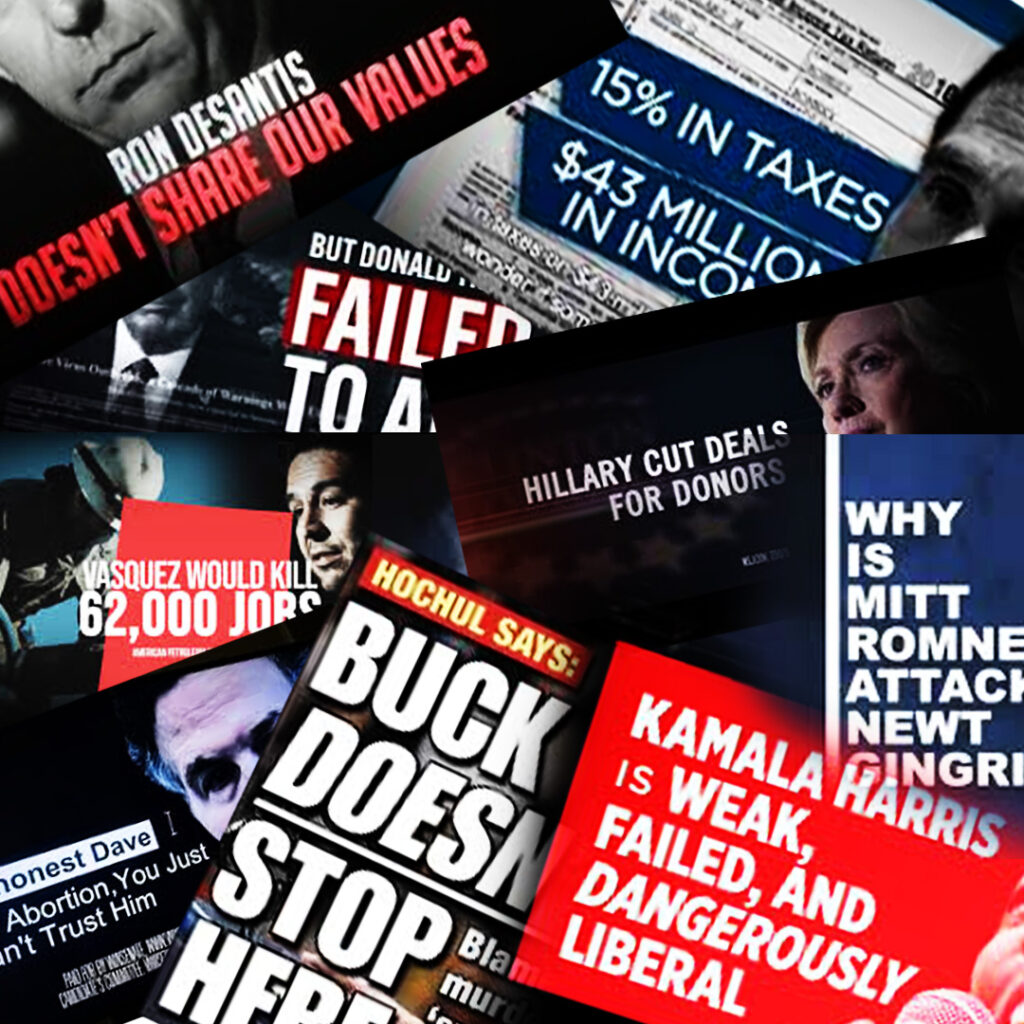This story is syndicated from The Survey at Brooklyn Technical High School in Brooklyn, New York. The original version of the story ran here.
Political attack ads influence the public’s perception of political candidates and the government. They are often used in campaigning to support a particular candidate by diminishing the reputation of their opponent. In political attack ads, the sponsoring candidate omits talking about their own policies and, instead, criticizes those of their opponents. Attack campaigning presents conflicts with democracy.

The power of political attack ads is best shown in modern times with the Cambridge Analytica scandal. Cambridge Analytica, a British political consulting firm, was working with the Trump campaign in the 2016 presidential election. Gaining access to the personal data of 50 million Facebook users, Cambridge Analytica gave each user a “score” based on five personality traits. It subsequently tailored its ads to target voters and influence their view of Hillary Clinton, Trump’s opponent. The most arresting was one that read “Defeat Crooked Hillary,” coined after a speech Trump gave in New York in which he said his opponent was, “being controlled by the special interests, by the lobbyists.” The Cambridge Analytica scandal demonstrates how narrowly tailored attack ads are, and how powerful they can be in influencing people’s perceptions of politics.
Attack ads have been around as long as election campaigning, but they have become harder to ignore. The rise of social media platforms like Instagram, Facebook, and Tiktok have introduced new campaigning tatctics. Social media platforms bolster political attack ads because they are able to target them towards specific voters. This can be problematic because social media has the ability to perpetuate political platforms that proliferate participatory distortion.
Rachel Germany, a teacher in the Social Studies Department, shared her belief that “traditional tv ads and ads on social media…are impactful to the extent that they tell a specific story, either about the greatness of their candidate, or the terribleness of the opposing candidate.”
As attention spans shorten, campaign ads use ‘buzzwords’ to engage the viewer. Words like ‘radical,’ ‘extreme,’ and ‘threat’ serve to make the viewer distrustful of the opposing candidate.
Across the country in 2022, Republican candidates ran campaigns revolving around mitigating crime. While crime is a very real issue, misrepresenting the truth leaves viewers misinformed, deepening the struggle for bipartisan government.
Germany explained, “When candidates on the right paint a picture in their attack ads about increasing crime rates, and certain candidates being too soft on crime, that can influence a student’s perception of actual crime rates and a general sense of dangerousness overall.”
Attack ads are effective and attention-grabbing, which is why we saw so many of them in last year’s midterm elections. In a recent poll of Brooklyn Tech students, 68% of respondents reported having seen at least one attack ad leading up to the midterms. This is no surprise considering how much money is spent on campaigning. Campainging expenditure in New York State, in particular, exceeded $68 million, the highest it’s been in 20 years.
Even though the majority of Tech students are unable to vote, attack ads impact us. When asked about how attack ads in campaigning have affected Tech students, Mathew MacLean, a teacher in the Social Studies Department, explained, “Generally, Tech students aren’t too involved in politics [because NYC tends to vote overwhelmingly Democrat, so there’s not much to ‘worry’ about], but this year, there were even less conversations about it than usual.”
Germany agreed with this statement, to an extent.“I don’t think most students are doing any research outside of whatever pops up in their social media,” she said. This presents a conflict because, as the next generation of voters, it is crucial that our votes are informed. We are seeing the effects of misinformation and polarization, even in New York, where voting Democrat is seen as the default.
Similar to his Republican counterparts across the country, Lee Zeldin (R) ran attack ads painting a gruesome picture of his opponent. Running on traditional family values and crime, Zeldin emphasized the shortcomings of the Democratic incumbent, Kathy Hochul’s (D) reforms. His campaign’s attack ads were centered around the dangers presented by raising the adult prosecution age to 18 and the elimination of cash bails for low-level crimes. While there is no clear link between these reforms and higher crime rates, crime was a key voting issue in the gubernatorial race. One attack ad even featured a 93-year-old woman being killed by a man released without bail.
Misleading advertisements and the use of buzzwords can strongly impact voting patterns. Although it seems like such a small step, making a habit of reading at least an article or two about local candidates during election season keeps you informed. Since most of us are unable to vote, our power lies in being informed and advocating for our interests and the interests of our families. The only way to push back against political attack ads is to diversify where we get our information and to have conversations with one another about what policies matter most.



